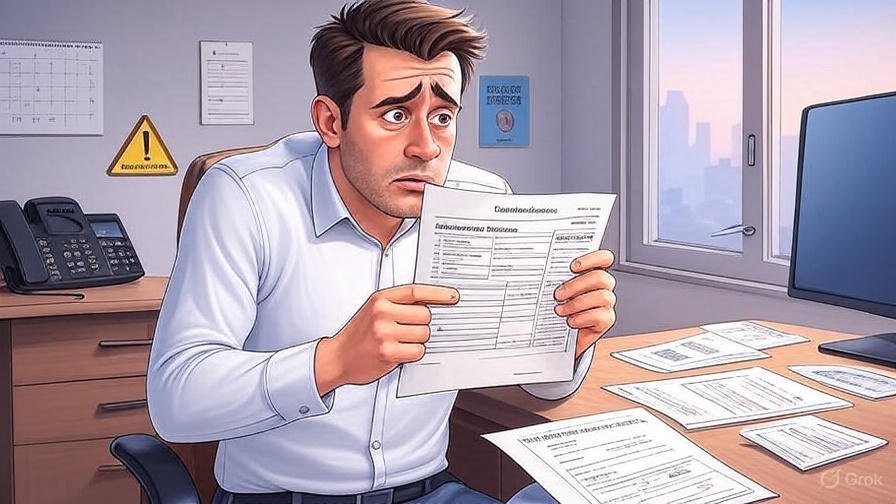When you hear the name Unifin Collection Agency, what comes to mind? A persistent phone call? An unexpected letter in the mail? If so, you’re not alone. Many people find themselves puzzled—or even stressed—when contacted by a collection agency like Unifin. But don’t worry, we’ve got your back. In this article, we’ll walk you through everything you must know about Unifin Collection Agency—like a friend guiding you through a maze.
Whether you’re trying to clean up your credit, stop the calls, or simply understand your rights, this guide is for you.
What Is Unifin Collection Agency?
Unifin Collection Agency is a third-party debt collection company. That means they either buy unpaid debts from original creditors or work on behalf of lenders to recover owed money. They’re based in Illinois but operate across the United States. If you’ve received communication from them, it likely means they believe you owe a debt.
So, what’s their role in your financial life? Think of them as a middleman trying to recover money, but you’re not powerless in the situation.
How Does Unifin Impact Your Credit Report?
Here’s the kicker—if Unifin Collection Agency appears on your credit report, it can drag your score down significantly. Collections accounts are considered derogatory marks and can stick around for up to seven years. That’s longer than most relationships!
Let’s break this down with a quick table:
Table 1: Credit Impact of Collections
| Status | Credit Score Impact | Duration on Report |
|---|---|---|
| Paid Collection | Mild to Moderate Negative | Up to 7 Years |
| Unpaid Collection | Major Negative | Up to 7 Years |
| Disputed & Removed | No Impact (once removed) | N/A |
If you believe the debt is incorrect, you have the right to dispute it. Never accept a collection account blindly—just like you wouldn’t eat mystery food without knowing what’s in it.
To better understand your rights when dealing with Unifin Collection Agency, visit the Consumer Financial Protection Bureau’s official page on debt collection for trusted guidance and legal protections.
Your Rights When Dealing With Unifin
Now, let’s talk power. Under the Fair Debt Collection Practices Act (FDCPA), you’re protected from harassment and deception. Unifin Collection Agency has to follow the rules—or face consequences.
Table 2: Key Consumer Rights Under FDCPA
| You’re right. | What It Means |
|---|---|
| Request Debt Validation | You can ask for written proof the debt is valid |
| Protection From Harassment | No threatening language, excessive calls, or contacting you at odd hours |
| Dispute Inaccurate Information | If it’s wrong, you can challenge it with credit bureaus and the agency |
| Cease Communication Request | You can request in writing for them to stop contacting you (with some exceptions) |
It’s your financial battlefield, and the law gives you armor—use it.
Tips on How to Handle Unifin Collection Agency
Here’s where the rubber meets the road. You’ve got options, and it’s time to act smart, not scared.
- Request Validation – Always ask them to prove the debt.
- Check Your Credit Report – Is the entry accurate and up to date?
- Negotiate If Needed – You may be able to settle for less than the full amount.
- Get It in Writing – Every promise, every deal—write it down.
- Consider Professional Help – Credit repair agencies or attorneys can step in if things get too heated.
Think of handling Unifin like navigating a storm—you don’t need to panic if you’ve got the right tools and a good map.
Should You Pay Unifin Collection Agency?
Ah, the million-dollar question—or maybe just a few hundred. Paying Unifin might stop the calls, but it doesn’t automatically remove the item from your credit report. If your goal is a clean slate, negotiate a “pay for delete” agreement. That’s when they agree to remove the negative item once the debt is paid.
FAQs About unifin collection agency
1. What is Unifin Collection Agency and why are they contacting me?
Unifin Collection Agency is a third-party debt collector that contacts individuals to collect unpaid debts on behalf of original creditors or debt buyers.
2. Does Unifin Collection Agency affect my credit score?
Yes, if Unifin Collection Agency reports a collection account to credit bureaus, it can significantly lower your credit score for up to seven years.
3. Can I remove Unifin Collection Agency from my credit report?
You can request debt validation or negotiate a pay-for-delete agreement. If the debt is inaccurate or unverifiable, you can dispute and have it removed.
4. What are my rights when dealing with Unifin Collection Agency?
Under the FDCPA, you have the right to dispute the debt, request validation, and demand Unifin stop contacting you under certain conditions.
5. Should I pay Unifin Collection Agency or ignore them?
Ignoring them can hurt your credit. It’s better to validate the debt first, then consider negotiating or settling if it’s legitimate.
Conclusion: Know Before You Act
Dealing with Unifin Collection Agency can feel like walking into a room full of fog—you’re unsure where to go or what’s real. But with the right knowledge, you can clear the air.
You’ve learned what Unifin does, how it affects your credit, what rights protect you, and how to respond with confidence.
Remember: Knowledge is leverage, and you now hold the keys. Take control of your credit story—one page at a time.
Custom Message:
If you ever feel overwhelmed, revisit this guide on Unifin Collection Agency: What You Must Know—because understanding is your first step toward financial freedom.





